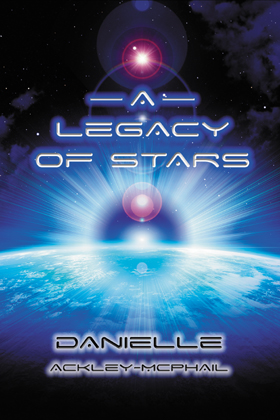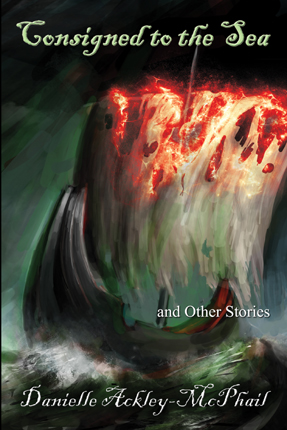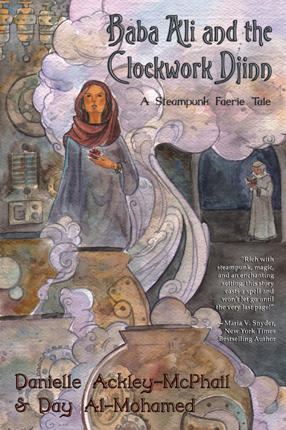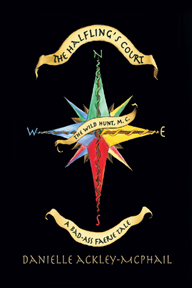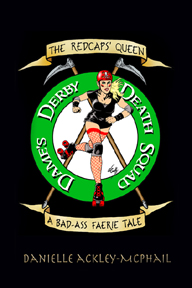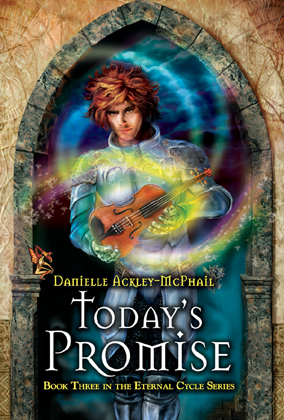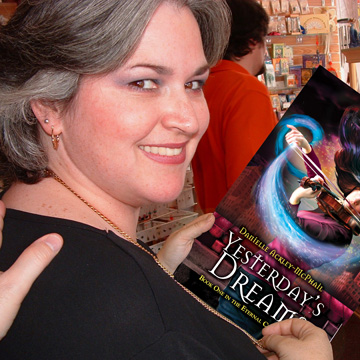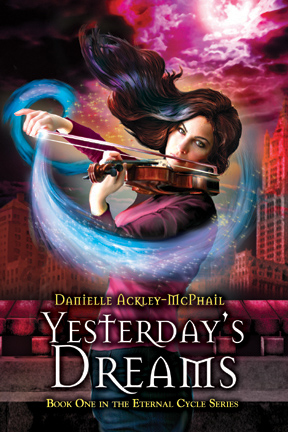The final part of my conversation with Danielle Ackley-McPhail, casting an eye on the nuts and bolts of creating anthologies, finding an audience, making the most of the convention circuit, and Dani’s most recent projects and ventures. Thanks all for reading! (Read Part 1, Part 2, Part 3, Part 4, or Part 5.)
You’re known as one of the most successful anthology editors in the specialty press, having edited, co-edited, or worked on nearly a dozen anthologies in the past decade and helped to launch them. How does your role as editor shape your work as a writer?
Well…thank you again. Editing anthologies came out of my love of creating books, something I have been doing for thirty-two years. I get ideas, I find the twist, and then I am driven to complete the project. Mostly they come about because I want to explore whatever concept has captured my mind. Consequently, of all of the anthologies I’ve been involved with in an editorial capacity only two of them do not contain stories I’ve written. So…in that context my editorial work shaped my writing by enabling me to explore some fascinating concepts as I found my tale to fit the theme. Conversely, in most other ways my editorial work just gets in the way. I find I’m so busy dealing with production and administrivia (not my phrase, though I absolutely love it!) that my writing often comes in last minute as I scramble to get my story done before we have to go to press. That, in fact, is why I only have an introduction in Bad-Ass Faeries: It’s Elemental… I just couldn’t draw my story together fast enough and we were out of time. This is the first volume in the series that doesn’t have a Wild Hunt tale. I’ve started it, but I just haven’t had time to find my way to the end. I’ll likely post it on the Bad-Ass Faeries website (www.badassfaeries.com) as a bonus freebie once it’s done.
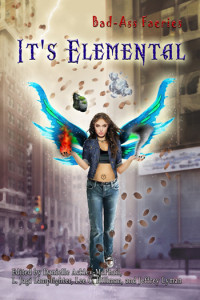 Looking at it first from a writer’s perspective then from an editor’s, what’s do you think it takes to connect with science-fiction and fantasy readers today?
Looking at it first from a writer’s perspective then from an editor’s, what’s do you think it takes to connect with science-fiction and fantasy readers today?
Oh… this is so hard to say… everyone has their own tastes when it comes to fiction. And I don’t think you can really break it out by editor and writer because there is too much overlap. Good fiction, originality, excitement. And as a writer I would add a solid connection to the characters, but that is me, as I am a writer of character-driven tales. Yet I know there are those readers out there who couldn’t care less about the characters, they want the action… You know. I think in the end it comes down to one thing: whether you are in the character camp or the action camp, you have to make the reader care. It is as simple as that.
To what extent do you think a shared connection with readers, such as common interest in fandom activities or a regular presence at conventions, contributes to succeeding as a writer versus simply publishing good writing?
I don’t know how it is for every author, but I know that I would not be where I am without my personal connection with my fans. I sell more books in person than I do on-line, with much more repeat customers because they know me. They can talk to me about what they liked and what they didn’t, we can chat and hang out at a convention. Now there are a lot more authors out there that are wildly successful who don’t do this, but most of those have a big-house publisher behind them feeding the distribution machine. And even so, I say an author that gets out and moves among their following has a stronger, more loyal fan base than one who stays up on their pedestal typing away, without connecting to their readership.
In terms of bringing great fiction to your readers, how do your goals as an editor differ from those as a writer?
Whatever hat I’m wearing, I love to create cool books. I love to share the unexpected and the wonderful with readers. Sometimes it works and sometimes it doesn’t, but that goal is always the same.
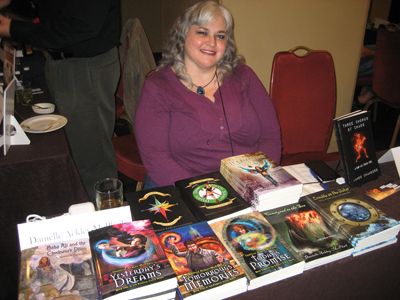 You’re very well plugged in to the regional science-fiction/fantasy convention scene, appearing at several cons each year, often hosting launch parties for new publications. What advice can you offer to writers about connecting with readers, editors, and publishers at these conventions?
You’re very well plugged in to the regional science-fiction/fantasy convention scene, appearing at several cons each year, often hosting launch parties for new publications. What advice can you offer to writers about connecting with readers, editors, and publishers at these conventions?
Talk. Listen. Socialize. Don’t pitch or pimp or continually drag focus only to your book or manuscript. Build a relationship, don’t just try and make a connection. We’re all there to have fun in a community where we are comfortable and can relax. Being pushy or obnoxious gets in the way of that and will turn people off more than anything.
Where should a reader who hasn’t yet read your work start? Give us some suggestions from your short fiction as well as your long fiction.
Well… any of my first novels are good places to start, depending on the reader’s taste: Yesterday’s Dreams (Celtic urban fantasy), The Halfling’s Court (biker faeries – urban fantasy), or Baba Ali and the Clockwork Djinn (historic/steampunk fantasy). After all, who wants to start with book two of a series. J As for the short fiction. If a reader is partial to science fiction it would have to be the short story collection A Legacy of Stars, which contains the bulk of my sci-fi stories. For fantasy I have a collection called Transcendence coming out later this year from Dark Quest Books. It contains a nice chunk of my fantasy stories. As for individual stories… that is so much harder to recommend. I just can’t do it. Each one contains some kernel of wonder that I love, and all of them are so different from the others. There is no comparison, no way to guide someone to ease their way in. Best to leap in with both feet. J
What should readers look for next from Danielle Ackley-McPhail?
Oh goodness! Who knows what mischief I’ll get into next! I certainly don’t. There are a number of on-going projects in the works. For anthologies I’m editing: Gaslight and Grimm, Eternal Flame, The Society for the Preservation of CJ Henderson, and The Transdimensional Adventures of the Miracle Mead Men. Those I’ve contributed stories to that are coming out this year are: Dance Like a Monkey, Athena’s Daughters, Hellfire Lounge 4: Reflections of Evil, and Lucky 13. Novels I’m working on are The High King’s Fool: A Bad-Ass Faerie Tale, Daire’s Devils (military science fiction), an as-yet unnamed sequel to Baba Ali, and an unconventional vampire novel looking for a new name. So…I guess readers should expect pretty much anything!
To follow Danielle’s projects, learn more about her, or buy her books, please check out her website and visit her Amazon author page. Also, look for her on the convention circuit where she’s a steadfast con presence up and down the east coast.

